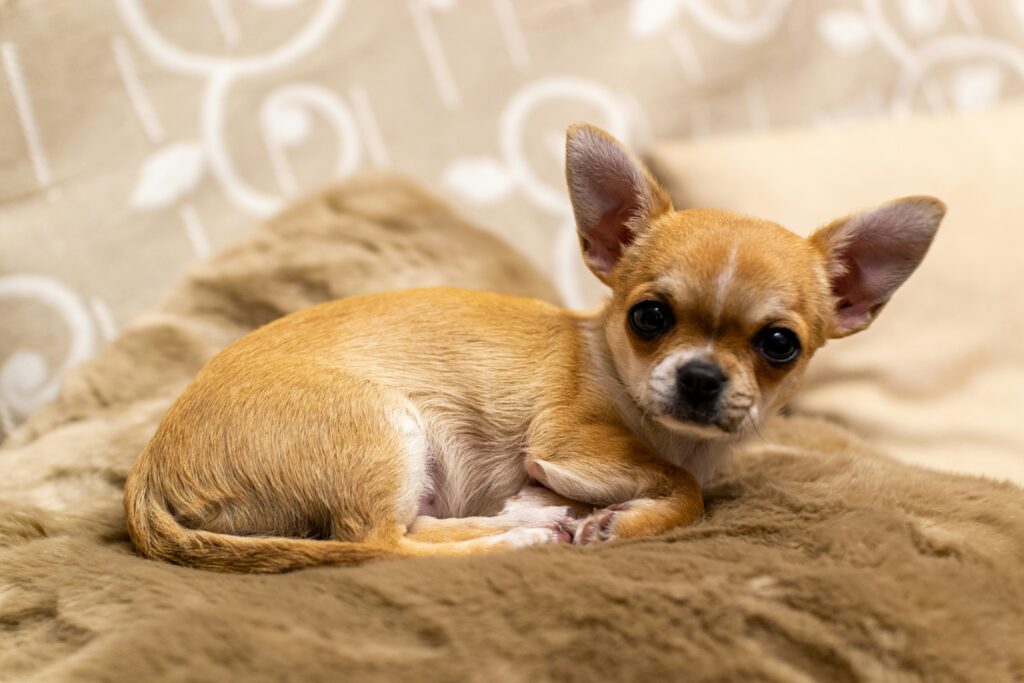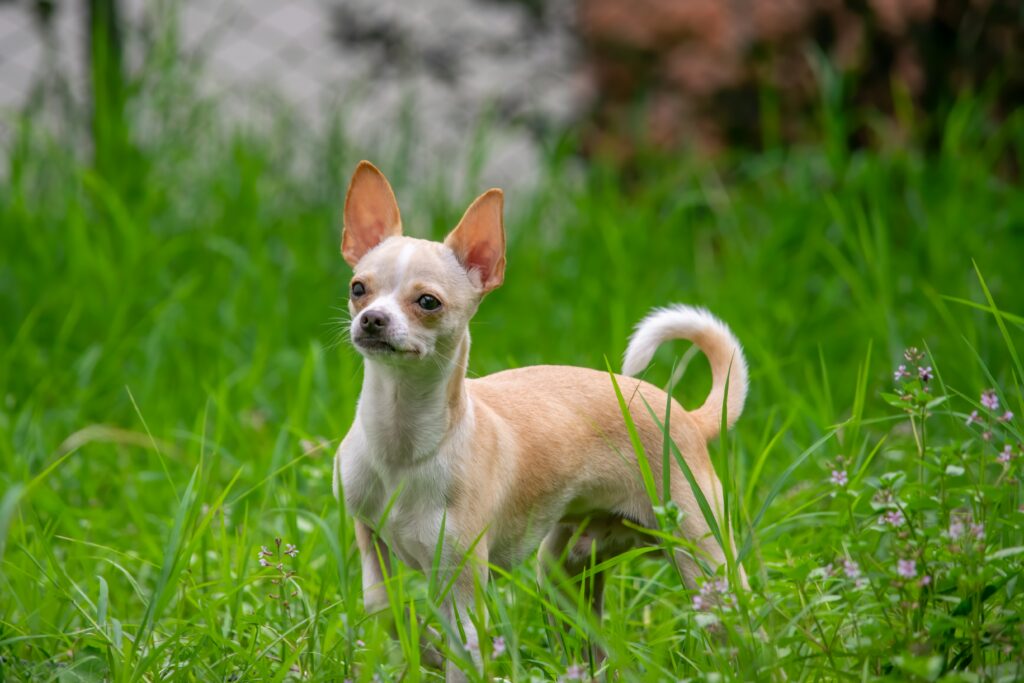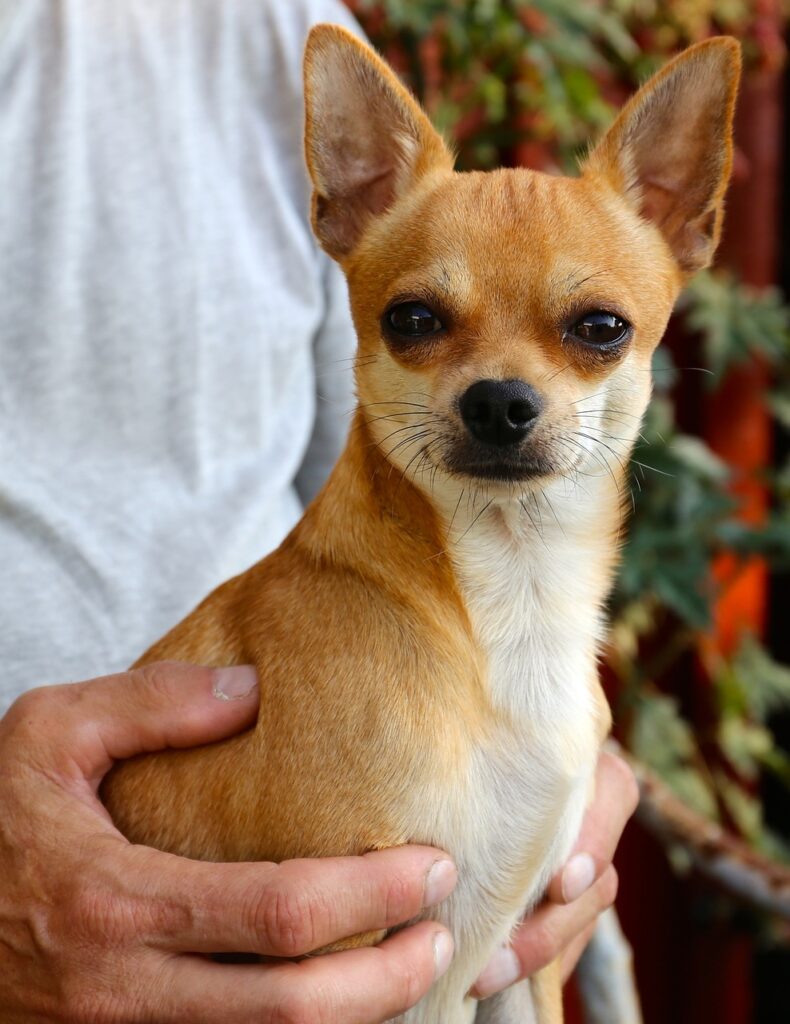
Written by: Rachel Holly
The chihuahua may be best recognized for its trademark diminutive size. But don’t let that fool you; these dogs are bold, expressive, and make excellent companions for those who understand their unique needs. This toy breed has captured the hearts of dog lovers around the world, but it’s important to understand their history, characteristics, and potential health concerns before making one part of your household. Let’s look at what makes these little guys so special.
Breed History
The Chihuahua’s roots trace back to ancient Mexico, where small companion dogs were bred by the Toltec civilization. One such dog, the Techichi, is considered a direct ancestor of the modern Chihuahua. For years the breed continued to evolve and was often associated with spiritual rituals and nobility. Today’s Chihuahua takes its name from the Mexican state of Chihuahua, where the breed was “rediscovered” by American visitors in the 1800’s. These small dogs were brought to the United States and quickly grew in popularity due to their compact size and lively demeanor. In 1904, the American Kennel Club officially recognized the breed and they have been one of our country’s most popular breeds for decades.
Appearance

Chihuahuas are unmistakable in appearance, with their tiny stature, large, expressive eyes, and prominent ears. Typically, an adult will weigh between 2 to 6 pounds and stand about 5 to 8 inches tall at the shoulder. The breed comes in two coat varieties: short-haired (smooth) and long-haired, both of which are found in a wide range of colors and patterns ranging from black, fawn, various shades of brown, and white. Their distinctive apple-shaped head also adds to their signature appearance. Due to their small size, chihuahuas are often a breed favored by apartment dwellers or condos.
Personality Traits

Contrasting their tiny size, chihuahuas have outsized “big dog” personalities. They are fiercely loyal, often forming strong bonds with one or two people. Known for being alert and vocal, they make excellent watchdogs, though sometimes this can cross into being excessively yapping, necessitating proper exercise and social stimulation to reduce boredom. These dogs are intelligent and curious, often displaying a sense of independence mixed with a desire to please their owners.
Chihuahuas are generally good with families but may not be the best choice for homes with very young children due to their delicate size and tendency to be easily startled. Children, as well as adults, need to be aware that these dogs are not the rough and tumble type and need to know how to properly handle them with care. Socialization is key to preventing territorial or aggressive behavior, especially around strangers or other animals.
Health Issues

Like all breeds, Chihuahuas have some health concerns that potential owners should be aware of. Their small size makes them prone to injuries, especially from falls or rough handling. Things like jumping off the sofa, which another dog can do safely, may result in an injury to toy breeds like these. Dental problems are common due to their tiny mouths, so regular teeth brushing and veterinary cleanings are essential.
Other health issues often found in chihuahuas are hypoglycemia ( low blood sugar), patellar luxation (a dislocation of the kneecap), heart disease, and collapsed trachea. This last one makes it especially important that a chihuahua uses a well-fitted harness and not a tight collar that can choke them if they tend to pull while walking. Regular vet checkups, a balanced diet, and responsible breeding practices can help mitigate many of these problems.
Final Thoughts
The Chihuahua is a dynamic, loving breed that thrives in homes where they are treated with care, patience, and affection. With their rich history, adorable looks, and perky temperament, Chihuahuas continue to be a favorite breed. Whether snuggled in a blanket or confidently strutting their stuff, a well-loved Chihuahua will undoubtedly bring joy to any household.